I’m making my annual predictions for the game industry again, not because I’m good at it, but because it has become one of the annual rites of December for me. I’m usually wrong or predictable when I make my predictions, but one day I’ll get right. I can’t be wrong all of the time.
As the game industry grows beyond the $134.9 billion behemoth it was in 2018, I hope that I can at least help people plan for the future or take a guess about something that forecasters might not otherwise think about. We are what we pretend to be, and today I’ll pretend to be a seer. I have 22 years experience as a beat writer on games. But I have never programmed or designed a game in my life.
I do play them though, and I talk to a lot of people about games. I’ve written about 17,000 stories for VentureBeat over 11 years, mostly about what other people think about the future of tech and games. Once a year, I look back at last year’s predictions and try to get into prediction mode. You’ll see some familiar themes that we will explore in our upcoming GamesBeat Summit 2019 event in Los Angeles.
First, I’ll give myself grades for last year’s predictions, and then I’ll make 12 new ones. For the usual comparison and embarrassment, here are my predictions for 2017, 2016, 2015, 2014, 2013 and 2012.
June 5th: The AI Audit in NYC
Join us next week in NYC to engage with top executive leaders, delving into strategies for auditing AI models to ensure fairness, optimal performance, and ethical compliance across diverse organizations. Secure your attendance for this exclusive invite-only event.
My 2018 scorecard
1. Red Dead Redemption will be the Game of the Year

Above: Red Dead Redemption 2
I was right that the much-delayed game would debut in 2018. I felt this epic Western deserved Game of the Year, after I played through 105 missions for more than 50 hours. It was a rare beauty of a game, with more than 3,000 people contributing to it over the course of eight years. But it was edged out at The Game Awards by God of War, and GamesBeat’s own team outvoted me and gave that title to another game. Yet Rockstar Games may have the last laugh, as the game is a huge commercial success and could generate more than 20 million copies sold in its first two months of sales. Let’s just say I was almost right.
Letter grade: B
2. The Nintendo Switch will be the bestselling console of the year
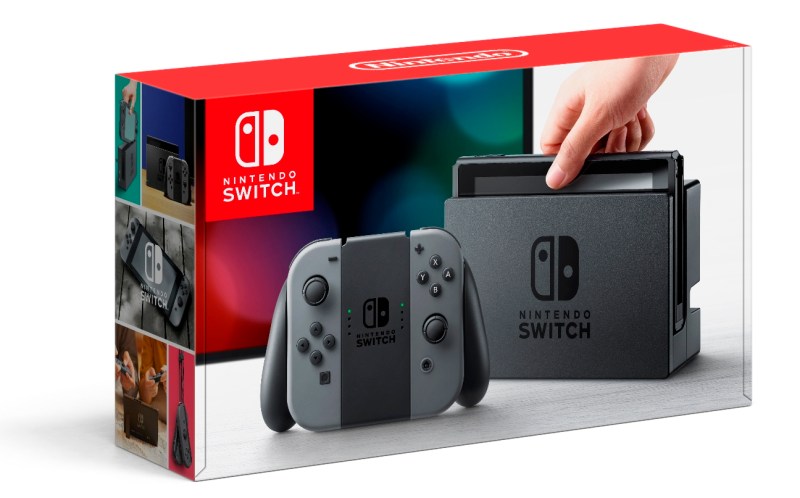
Above: Nintendo Switch
Nintendo has had good lifetime sales for the Switch so far, selling an estimated 25 million units since March 2017. It is more successful than its predecessor, the Wii U, by far. But it’s unclear which console sold the most units in 2018, as none of the parties have reported sales yet, and the all-important month of December still has to play out. In the second fiscal quarter ended September 30, sales were kind of disappointing.
Letter grade: TBD
3. Gamer rage will take new and unpredictable forms
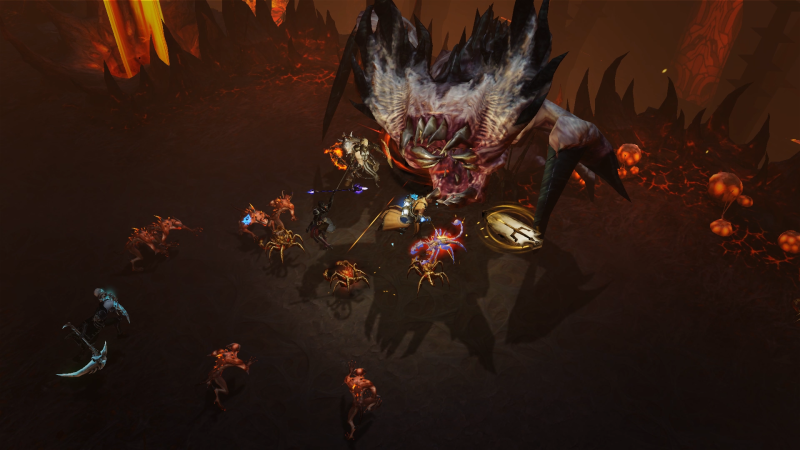
Above: The Monk in Diablo: Immortal.
I was right about this one, but I didn’t think Blizzard Entertainment would be the instigator. When Blizzard promised a new glimpse of a Diablo game for BlizzCon 2018, gamers got their hopes up. But they were very upset to find out that Diablo: Immortal would be a mobile game. They feared, wrongly, that Blizzard wasn’t working on a big PC title related to Diablo. Epic Games’ popular Fortnite title also got some hit from the hip hop artist 2 Milly, who claimed Epic Games copied his Milly Rock dance as an emote in the battle royale game. Even the companies with the best intentions and the best hardcore line-ups can run afoul of the internet haters. That’s something we’ll address at our GamesBeat Summit 2019 event, where the theme is about building gaming communities.
Letter grade: A
4. VR will get cheaper and better, but it will continue to perform below expectations
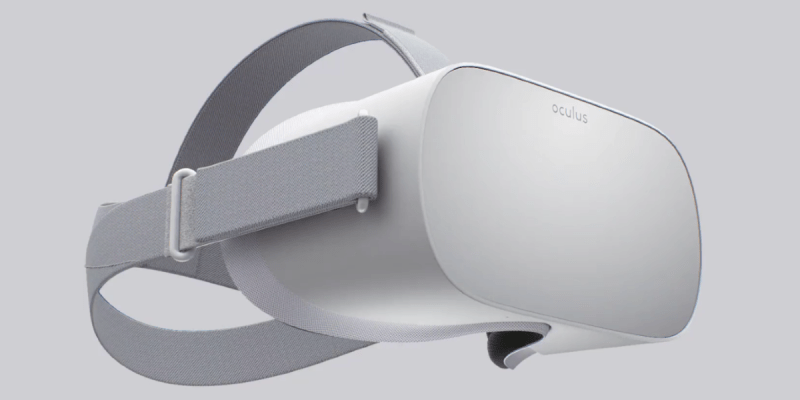
Above: Oculus Go.
Facebook did indeed launch a price war in virtual reality with its $200 standalone Oculus Go VR headset in 2018. But that system didn’t ignite a boom in VR sales. The Sony PlayStation VR continued to sell, but it felt like the whole industry was pivoting to VR arcades throughout the year. Facebook’s Oculus will try again in the spring of 2019 with the launch of the Oculus Quest, a wireless headset with full hands-on controllers. But for now, the consumer reaction to VR is quite muted.
Letter grade: A
5. AR gaming will take off in a variety of ways

Above: Pokemon now appear at scale in augmented reality.
Augmented reality still hasn’t taken off the way anyone hoped or predicted. There’s a lot of it on mobile devices, like Pokémon Go and Jurassic World: Alive. But AR headsets are so expensive that they’re being targeted at enterprises. And there aren’t any AR apps in the top 100 grossing mobile games, unless you count CSR 2’s AR experience. But that was an add-on to a popular game.
Magic Leap began selling the developer version of its AR headset, dubbed the Magic Leap One Creator Edition. But it was priced at $2,300, and very few people were able to enjoy it as a consumer technology in 2018. Like VR, it looks like AR is going to be a slow-cook experience.
Letter grade: C
6. Influencers will grow in importance, but must be reined in as well
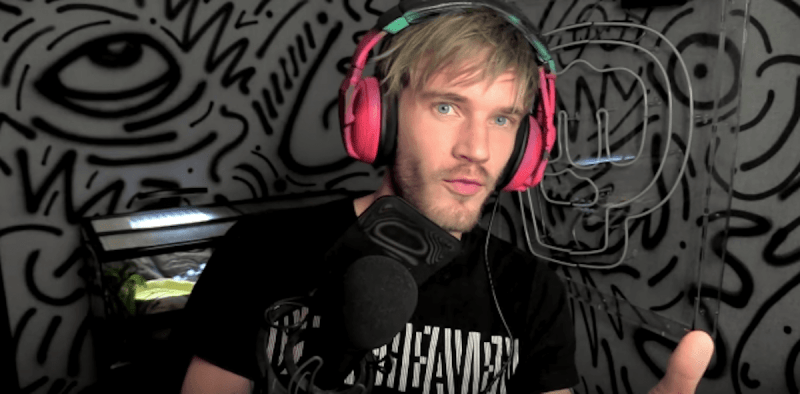
Above: PewDiePie doesn’t want to be considered with Nazis, but his language isn’t helping.
Influencers got more popular than ever. Dominique “SonicFox” McLean and Ninja are making lots of money showing off their skills and entertaining people at the same time.
But it didn’t seem like the bad boy influencers like PewDiePie lost any real audience, despite a history of making Nazi jokes. Plenty of misbehaving streamers were banned, and yet others became more popular because of their badness.
Letter grade: B
7. Esports will continue to score funding and growth

Above: Seoul Dynasty is a new Overwatch League team.
As predicted, investment stalled on VR, and a lot of attention shifted to esports investments. Venture capital firms such as Accel became bullish on esports, and traditional sports owners got further into making investments in esports teams.
Millions of dollars in investments went into companies like Fnatic, PlaysVS, ESL, Newzoo, The Esports Observer, Team Vitality, Popdog, Complexity Gaming, and Gen.G.
Market researcher Newzoo predicted that esports could hit $1.7 billion by 2021. Esports is still in its hype stage, but no one has popped the bubble yet.
Letter grade: A
8. The Leisure Economy will gather momentum
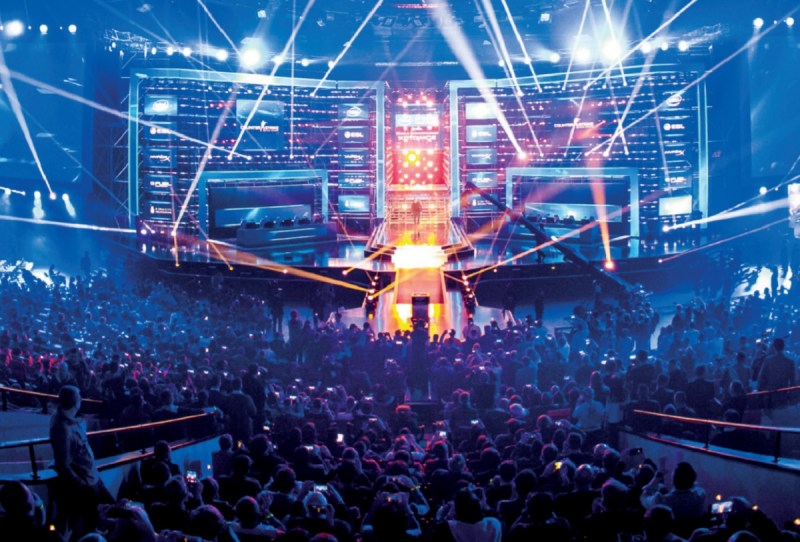
Above: Esports is on the rise.
Getting paid to play games was a big theme of our GamesBeat Summit 2018 event. It started as something I had heard from the craziest of forecasters, like Bing Gordon of Kleiner Perkins, and it slowly became something that I believed in as well. (It will come up again at GamesBeat Summit 2019).
Now I hear other people talking about how streamers and other esports stars are creating new jobs that didn’t exist a generation ago. They include esports athletes, shoutcasters, esports agents, cosplayers, mod designers, user-generated content developers, influencers, livestreamers, and more.
There isn’t a huge long tail yet. Mostly, celebrities like the aforementioned Ninja are getting rich playing games. But in the long run, I think this trend is getting more exciting.
Letter grade: A
9. Big games will be delayed. Blockbusters will astound us.
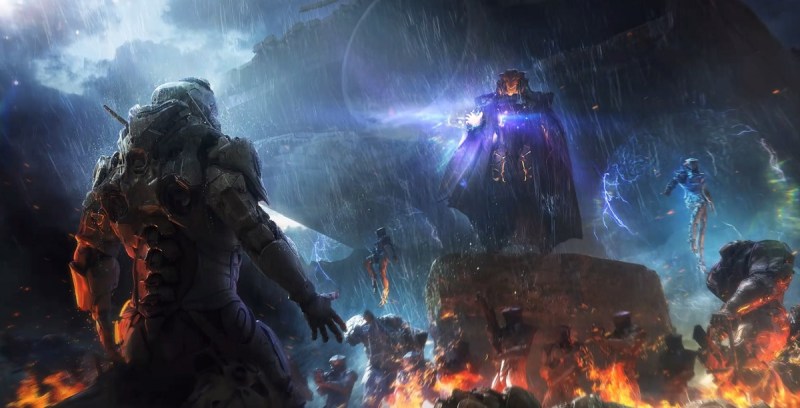
Above: The Monitor leads the Dominion in Anthem.
Sadly, some of the most anticipated video games of the year were delayed from 2018 to 2019. One of those was Anthem, from Electronic Arts’ BioWare division. That title is now coming on February 22. We’ve got some big titles coming in 2019 (that we expected in 2018) like Days Gone. We have no idea when others are coming, like Ghost of Tsushima, Halo Infinite, or The Last of Us Part II.
Meanwhile, yes, Red Dead Redemption 2, Spider-Man, and God of War astounded us.
Letter grade: A

Above: PlayerUnknown’s Battlegrounds has crossed 10 million daily active users.
10. Battle royale titles will multiply and peter out
I predicted a year ago that Player Unknown’s Battlegrounds and Fortnite might be the only games that really prosper in the battle royale genre. I was right about how these games would multiply, but that “peter out” guess was wildly inaccurate. We saw the successful launches of battle royale titles like Call of Duty: Blackout (I was right about that one), Ring of Elysium, and Realm Royale. But rather than peter out, it only seems like this game mode is picking up fans. Red Dead Online has one, and Battlefield V will add it as an update in 2019.
Letter grade: B
2019’s predictions
1. The Hunger Games license will surface with 1,000-player battle royale
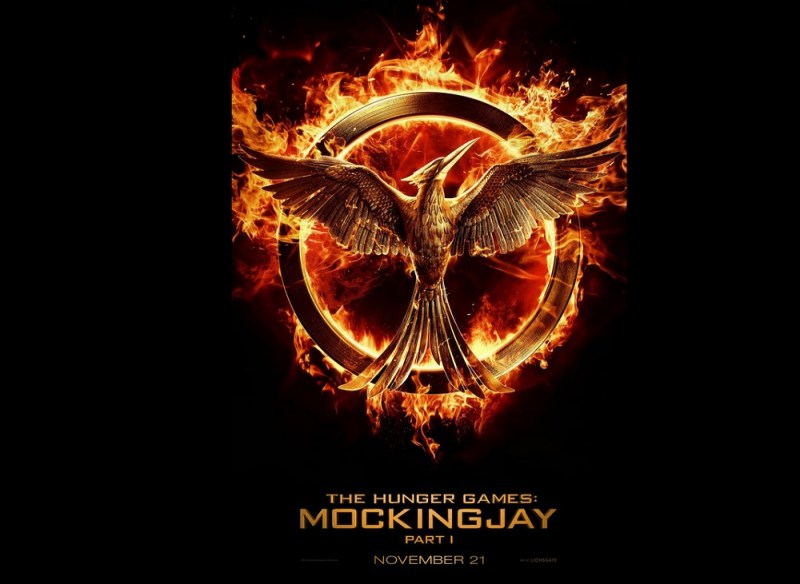
Above: Lionsgate makes movies like The Hunger Games series.
Here’s one of those predictions that I wish would happen, as opposed to I know it will happen. Somebody should do a video game based on The Hunger Games, which was the inspiration for the battle royale games like H1Z1 and PlayerUnknown’s Battlegrounds. The virtual-world sim company Improbable has already predicted that games based on its SpatialOS platform will enable more than 1,000 players in a single large map. Automaton is making a game called Mavericks: Proving Grounds, based on SpatialOS, where 1,000 players will be able to fight it out.
But for heaven’s sake: Someone has to make The Hunger Games so that it can assume its rightful place on the throne of the battle royale genre. This is an obvious idea, like taking Pokémon into location-based games such as Pokémon Go (a $2 billion game). Lionsgate owns the film property, and it has become active in video games. But so far it has only dipped its toe into the waters via mobile games based on the license.
2. Cloud gaming slouches toward Bethlehem

Above: Blade promises quality Shadow cloud gaming on any device.
When cloud gaming becomes cost-effective and reaches great quality, it will be a beast. The notion of streaming games from a data center to any screen, regardless of the processing power of the player’s machine, makes so much sense. Companies big (Google) and small (Blade) are working on the technology. Blade released its Shadow service at $35 a month, which is far higher than what most gamers will pay. And Google’s Project Stream makes Assassin’s Creed: Odyssey work via the cloud. No one has to download a game or put a disc in a machine. You’ll be able to switch from mobile to PC to console, playing the same game. It could be very disruptive. Yes, this strange beast slouches toward E3, waiting to be born. I’m also interested in Amazon’s version of this, and whether it relates to Jeff Bezos’ directive for his game developers to make games with “ridiculous computation.” Microsoft and Sony are talking up cloud gaming as well. With all of that activity, I have to believe someone will make a big splash in 2019. And maybe someone will get it right.
3. China will resume its growth in games
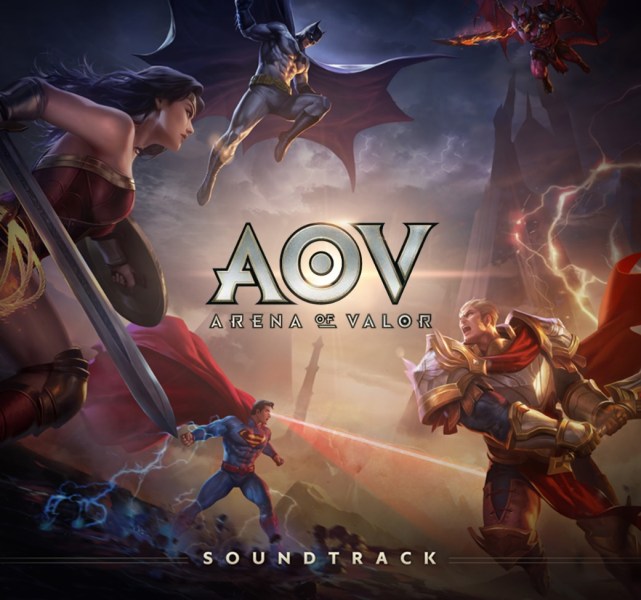
Above: Arena of Valor is the Western version of Tencent’s Honor of Kings.
China became the biggest market for games on the planet. Then the Chinese government stepped in. It put its foot down and stopped approving mobile game launches, as two agencies had to approve titles and one of them had to come up to speed. The move spooked investors, leading Tencent to lose half of its market value. That stalled some of the company’s lightning-fast moves to expand its gaming business in the West. But now the certifications have started again, and China could very well return to fast growth in 2019. It’s still a weak place for console games, but PC and mobile games, and a rising stock market, should help Chinese companies regain their position at the top of the global game industry.
4. Blockchain gaming startups will produce great ideas, but adoption depends on big companies

Above: CryptoKitties spawned a craze for blockchain in games.
Blockchain and cryptocurrency startups have a lot of bright ideas for improving video games. Robot Cache plans to use blockchain to create app stores that are more efficient and allow developers to keep more of the proceeds. High Fidelity hopes to enable cross-platform virtual reality games with the immutable ledger of blockchain networks. And CryptoKitties burst on the scene in December 2017 with the debut of its collectible cats. It let you buy and sell them, and some of the kitties started going for prices as high as $200,000. These companies are racing ahead with plans to get their blockchain technologies off the ground.
But these companies have had a haircut when it comes to valuation. Cryptocurrencies have seen a rise and fall when it comes to market prices. Regulators have also stepped in to slow down the funding of questionable cryptocurrencies. And it requires mainstream adoption for any currency to become useful, and that’s a big chicken-and-egg problem for blockchain gaming. If the big companies start adopting blockchain and crypto, it will have a chance to become embedded in the consciousness of consumers. But first, it will have to do something useful to them, and it must be fun. That hasn’t happened so far.
5. Esports will become a battle royale, with winners and losers
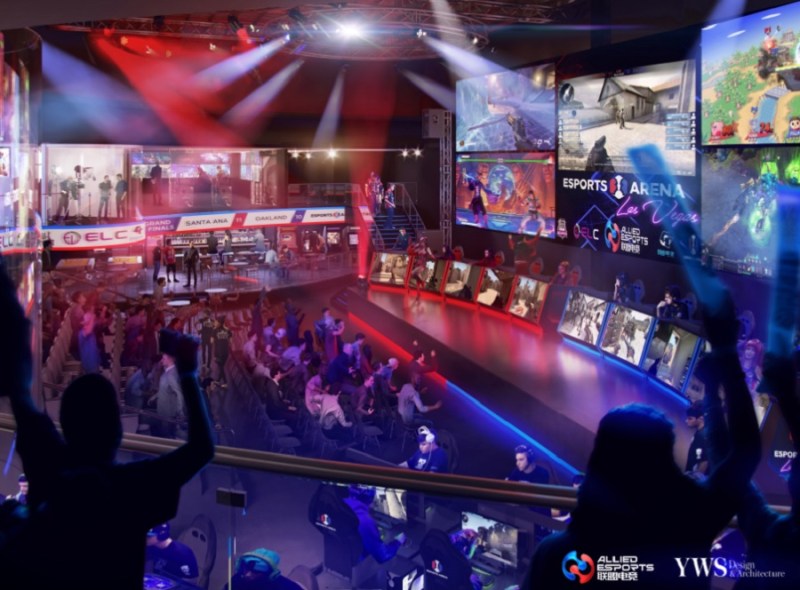
Above: Allied Esports, Esports Arena, and MGM are teaming up to building an esports arena in Las Vegas.
A rising tide of investment has been lifting the esports industry. Teams and tournament organizers are raising money. Venues for esports are rising in Las Vegas and elsewhere. Global esports revenues are expected grow 38 percent to $906 million in 2018 and further grow to $1.65 billion by 2021, according to a new annual report on esports by market researcher Newzoo.
But we should remember that virtual reality had the same kind of ebullience behind it, and it stalled. Esports could suffer some of the same problems, with a few companies succeeding and many failing. For instance, not every game will succeed. H1Z1’s esports league stopped in mid-season. Not every league will have a critical mass of spectators. And not every group of spectators will spend a lot of money related to the esports competitions. An impressive array of investors are pouring money into the esports gold rush. But it’s important to remember that it’s a gold rush, with all of the risks attached.
6. Gamers will think of new ways to play games and make money doing it.
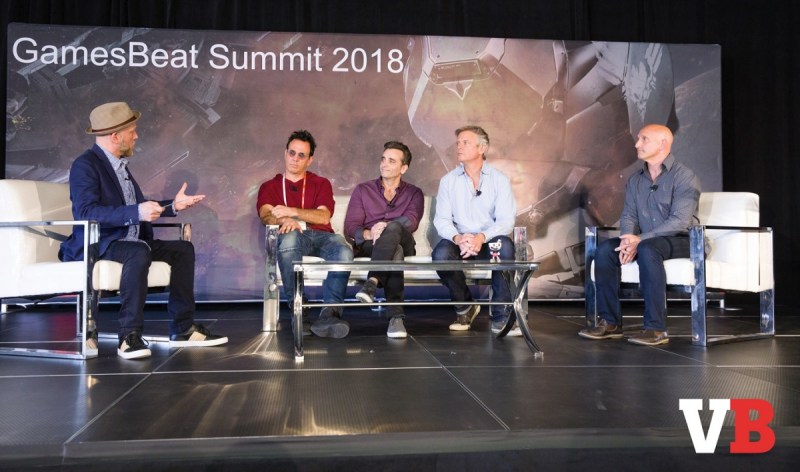
Above: (Left to right) The Leisure Economy panelists: Adam Sessler, Co-Founder of Spiketrap; Jon “Neverdie” Jacobs, CEO of Neverdie Studios; Gio Hunt, EVP & Executive Producer of Platform Technology & Experiences at Blizzard Entertainment; Philip Rosedale, Founder & CEO of High Fidelity; Craig Donato, CBO at Roblox
As I mentioned with last year’s prediction about the Leisure Economy, gamers are creating jobs and careers that didn’t exist a generation ago. I think they will continue to do so in the new year. They will create jobs with titles like “shoutcaster,” or become the video editor for an esports team, or make money training high school kids how to be better at esports. These people will become influencers and get rewarded for it, whether that reward comes as a paycheck or a cryptocurrency payment.
My hope is that a long tail of gamers will be able to make a living playing games, or doing something related to that. These “creator economy” jobs might have seemed crazy in the past, but now they’re more than a novelty. In the meantime, many people are predicting that artificial intelligence will wipe out many traditional jobs. So why don’t we just get paid to play games? I’m up for a life of leisure.
7. The Metaverse will start to take shape
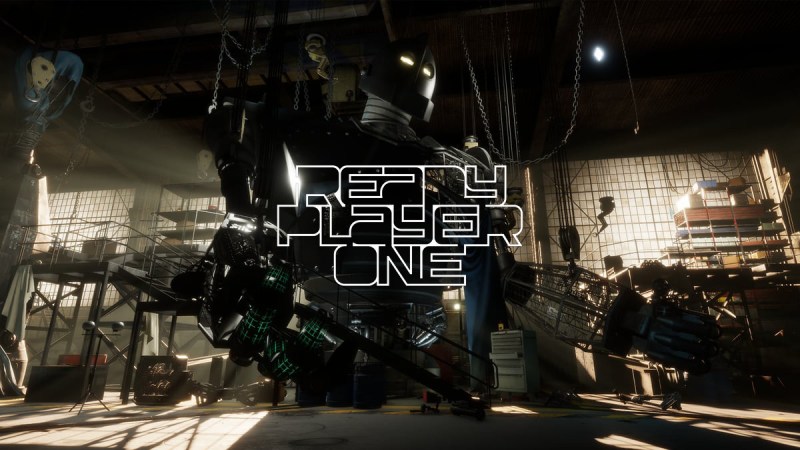
Above: Ready Player One represents one form of the “metaverse” idea.
I firmly believe that the Metaverse, or nexus of connected virtual worlds, will happen in our lifetimes. Just like in books like Snow Crash or movies like The Matrix, we’ll jack into the digital “verse” of some kind and stay there. But it takes a lot of foundational work. Visionaries like Epic Games CEO Tim Sweeney foresee the need for open source technologies to come together, from blockchain to cross-platform agreements between game platform makers, to make the open Metaverse happen. After all, we don’t want to be locked into a universe that just one company owns.
And yet there is enough common interest and potential for profit for the game industry and other related industries to come together and make this vision come to pass. It won’t all happen in a single year, for sure, as we’ve been talking about this vision for decades. But there are enough people talking about it in the wake of films like Ready Player One to stir the interest and get the pot brewing. Let’s just hope the Metaverse won’t turn out to be a dystopia. Again, this is not a case where I have any inside knowledge that this will happen. This is one of the cases where I believe it should happen.
8. The lines will blur between games, esports, and gambling
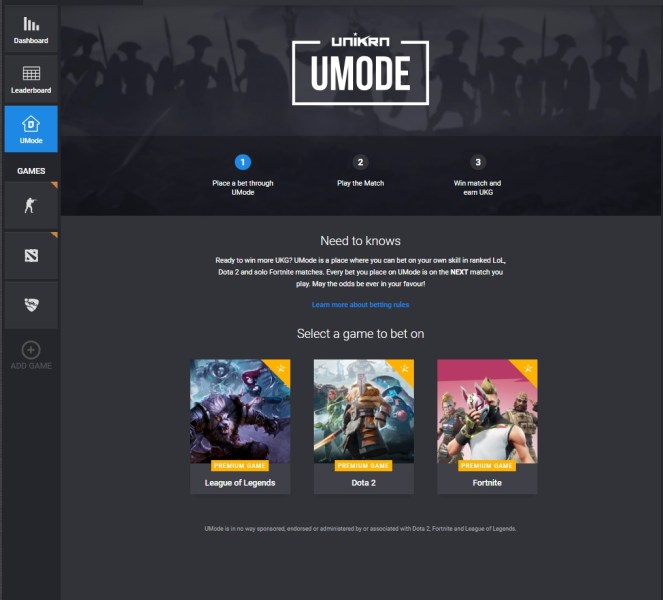
Above: Unikrn’s Umode lets you get on games.
The courts have cleared the way for betting on games of skill, and for other esports-related gambling. And some companies like Unikrn and Skillz are taking advantage of it. It’s no accident that the new Esports Arena debuted in Las Vegas at the Luxor Hotel. Unikrn can enable “spectator betting” on esports matches or “skill-based” betting on your own gameplay against others in games of skill such as Fortnite. Companies like payments firm Worldpay are watching the blurring of esports, gambling, and gaming closely, and they’re preparing for what it could mean.
Of course, not everything is so easy. Big Fish Games lost an important case in the state of Washington, where a federal appeals court judge ruled that social casino games like Big Fish Casino were considered illegal online gambling. And that leads to our next prediction.
9. Regulators will catch up with gaming’s frontier and crack down where needed

Above: Star Wars: Battlefront II drew ire for its loot boxes, and EA fixed many of the problems.
Sometimes, games race ahead of the government. That’s the case with loot crates and microtransactions. Platform owners are wise to crack down on abuses, like when Apple decided to limit kids’ ability to to rack up huge bills through in-app purchases that their parents didn’t know about.
EA pushed fans to their limit with the microtransactions in Star Wars: Battlefront II. Fans could get ahead by buying Darth Vader far more easily than the time it took to earn the character through gameplay. Regulators around the world are examining this issue. They’re also looking into privacy violations, cryptocurrency fundraising through initial coin offerings (ICOs), and the aforementioned gambling issues. We see activity from regulators across the world, including areas like China, South Korea, Japan, the European Union, and the U.S. Game companies should get the message and decide how close to the edge they want to skate.
10. E3 will hold together
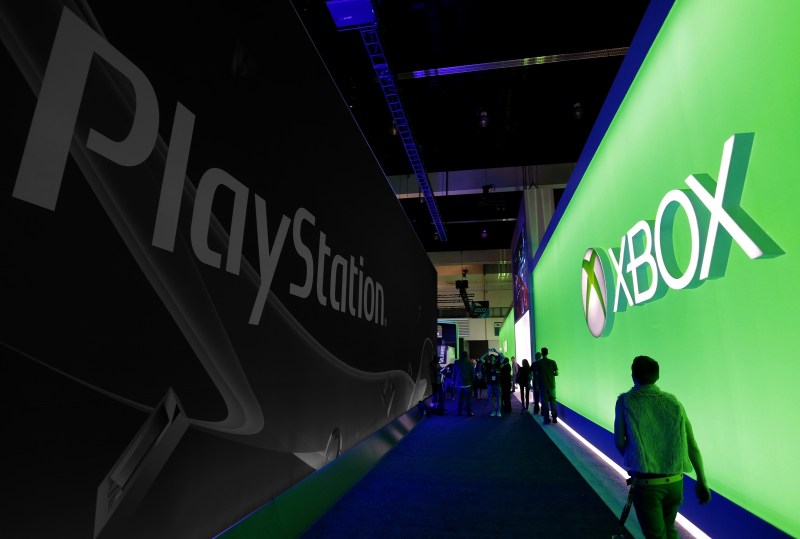
Above: PlayStation is skipping E3 2019.
When Electronic Arts decided to leave the show floor of the Electronic Entertainment Expo (E3) trade show, some predicted doom for U.S. gaming’s largest event. But the show went on. Now Sony has also decided to skip E3 2019, exiting gaming’s big trade show for the first time in 24 years. That move was preceded by the resignation of longtime E3 chief Mike Gallagher, CEO of the Entertainment Software Association. A replacement hasn’t been named yet.
But I’ll wager that E3 will still be the center of gravity for games in 2019. Other shows like PAX aren’t set up for big announcements or satisfying the business-to-business crowd. E3 draws about 65,000 people to the Los Angeles Convention Center, along with 2,400 companies. The disappearance of one exhibitor, Sony, which will likely have an off-year after shipping some really big games in 2018, shouldn’t make much of a difference. I am looking forward to what Sony does instead, and whether it will mention the PlayStation 5 in 2019. But I am still planning on going to E3. At the moment, there’s nowhere else to go for the same experience.
11. Games will make their way to strange platforms
In 2018, we started seeing games on the Amazon Alexa platform, such as Universal Brand Development’s Jurassic Park: Revealed. In the game, you use our voice to interact with the characters and story. Drivetime also created a similar title that you can play in your car. You can play Drivetime’s trivia game using your voice. The idea is to keep you more alert on the road by competing to answer trivia questions against other drivers.
These are two examples of how games find their way onto new platforms where they were never intended to take center stage. Like life, games find a way. We will see many new platforms in our lives, and games will make it to every one of them.
12. Reboots continue to breathe life into old franchises

Above: Resident Evil 2 remake
On both the hardware and the software front, reboots and remakes are going strong. We just finished the trilogy of rebooted games for Lara Croft, with 2018’s Shadow of the Tomb Raider, and the highly successful reboot of God of War. The next big one coming is Resident Evil 2. Red Dead Redemption 2 took the prequel route, and it made fans anticipate interesting twists in the storyline.
And on hardware, we may see some news about the Atari retro game console, the Atari VCS, and the new Intellivision console reboot coming from Tommy Tallarico. Fans love the gameplay that they know with proven franchises. And sometimes it’s not good to just keep on going with a franchise forever, grinding it down into ever smaller audiences.
Reboots give developers a chance to re-imagine a familiar property from the ground up, create better graphics, and service fans who want a return to great gameplay without some crazy new tortured plot. But as the Tomb Raider reboot showed, a well-executed reboot can reignite an aging franchise.


